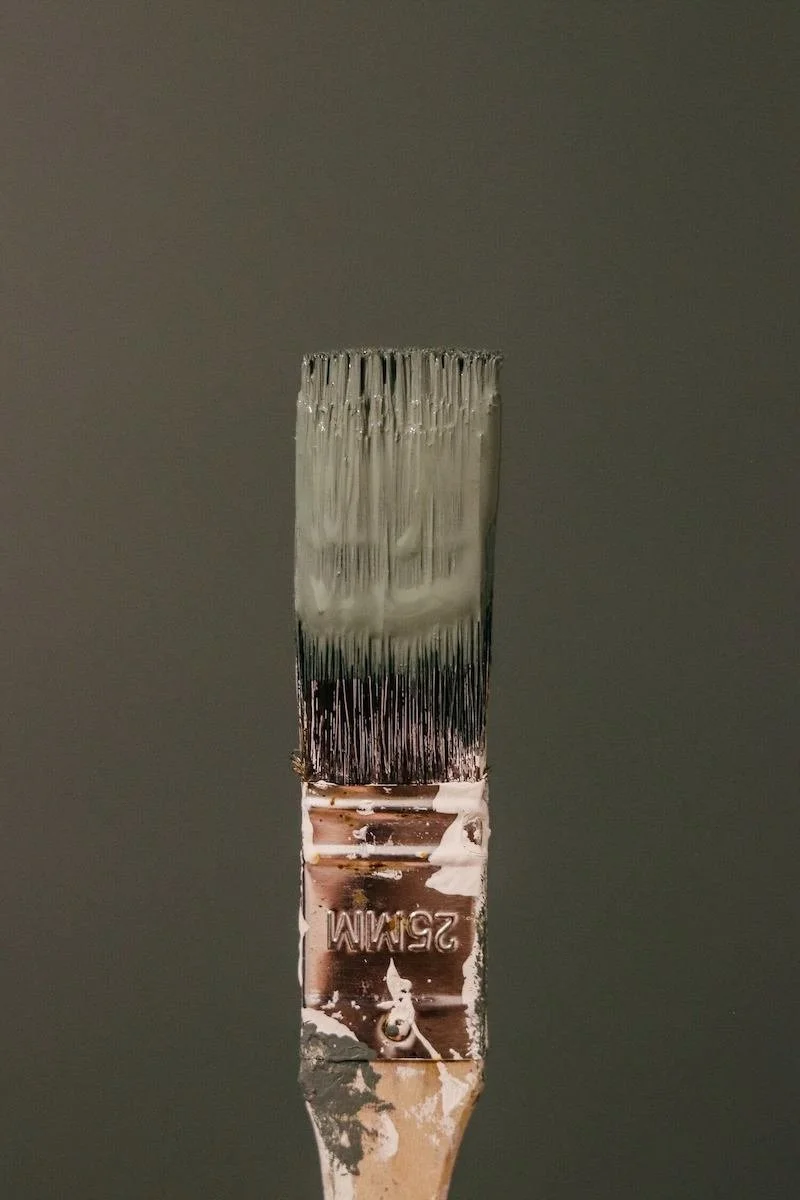The Master List of the Best Non-toxic & Organic Halloween Candy Brands
Halloween is just around the corner which means costumes, decorations, and of course, candy. Already picturing a trick-or-treat bag full of candy corn, pops, some chocolate bars and other sort of snacks?
As we are becoming more aware of what we put in our bodies and the impact of our consumption both on our bodies and the planet, Halloween candy, definitely needs to be part of the conversation.
This post does contain some affiliate links which means The Honest Consumer will receive a commission if you decide to purchase, however, at no additional cost to you!
This guide will explore some of the scary, toxic ingredients in candy and provide some organic candy alternatives.
Plus, a few natural and organic candy brands we'll be exploring include:
These are some of my personal favorite less toxic & organic candy brands!
Pin this post for later!
Keep on reading to learn why we love these brands and non-toxic ingredients to look for, and what to avoid in the candy aisle!
Are There Toxic Ingredients in Candy?
Have you ever taken the time to try and read the ingredients mentioned in the label of the usual Halloween treats?
We often think of sugar as being the worst ingredient in candy, but if you have spent time looking at labels you might have noticed there are a lot of ingredients that are hard to pronounce…maybe that is because these companies don’t want you understand what other harmful ingredients are in their candies.
This is a list of some of the scary, potentially toxic ingredients found in popular American Halloween candy choices.
However, this list is just the beginning, I recommend doing your own research as there are many more ingredients that are unhealthy.
Partially Hydrogenated Oils: With a high level of trans fats that increase the risk of developing heart disease and health problems. In 2018 the FDA even stepped in and started to create some regulations for partially hydrogenated oils.
High-fructose corn syrup: This sweetener has been linked to obesity, diabetes, and inflammation.
Vanillin: imitation vanilla that is likely either synthesized from pulp or wood-tar creosote
TBHQ: Also known as tertiary butylhydroquinone is petroleum based and used in candy to extend the shelf life and delay the oxidation. While the FDA regulates how TBHQ can be used, when found in high doses this can be toxic to humans…even if it’s regulated it’s not something I feel comfortable putting in my body.
Growth Hormones: With the number of steroids, hormones and antibiotics that are nowadays given to cows and have a detrimental effect in humans, if you don’t know where the dairy is sourced from this can be an ingredient to look out for. However, if the dairy products used in the candy are certified organic this means the cows were raised without synthetic hormones.
Artificial Colors: many of which are petroleum-based artificial food dyes and that have demonstrated can cause, amongst others, hyperactivity in sensitive children.
Artificial Preservatives: Consumed in high quantities not only have been proven to have negative effects not long after consumption, they also have negative long-term effects on your health such as: trigger asthma attacks, weaken heart tissue, contribute to hyperactivity, heart diseases and even cancer.
When looking at cleaner candy options look for organic ingredients! Even products that aren't certified organic can have organic ingredients. It's easy to find options that use organic cocoa butter or organic tapioca starch.
Other less toxic candy shopping tips include looking for brands that use fruit juice, real fruit, or vegetable juices as flavoring or coloring instead of artificial options.
Environmental Impact of Candy
Not only is candy bad for our health, but the industry has many negative impacts on our planet.
As we look at the list above, we say multiple petroleum based ingredients. As we know petroleum is not an eco-friendly industry.
We also have to take into consideration the sustainability of the dairy industry as chocolate candies are incredibly popular. The use of hormones in the dairy industry is not very sustainable. Look for candies that use certified organic dairy in their ingredient list as these farms typically have a lower environmental impact.
Palm oil is another ingredient found in candies and this has been known to contribute to deforestation and emitting a large amount of greenhouse gases through the harvesting, depending on where the palm oil is sourced from.
It’s no secret that most candy is wrapped in plastic. We all know that plastic is a huge problem.
Unethical Labor in the Candy Industry
The cocoa industry is widely known for being abusive towards farmers. This mistreatment takes place in forms such as child labor, human trafficking, and unpaid labor.
It is reported that there are 2 million child laborers in West Africa alone, many of whom were kidnapped and forced into the labor of the chocolate industry. Along with cocoa, sugar and other ingredients have also been linked to displacement of communities, draining resource, and unfair labor practices.
The candy industry in the USA is a 70 billion dollar industry and laborers should be paid fairly. While all of this may seem overwhelming, there are a few things we can choose as consumer such as organic and fair trade.
Is Organic Candy Healthier?
While organic candy isn’t necessarily healthy, the ingredients tend to be cleaner and the end product crafted with less chemicals. It's definitely a healthier option when looking to satisfy your sweet tooth with a delicious treat.
When shopping at the grocery store you can easily look for the USDA Organic label on certain candies.
This means the candy has been certified by a third party and contains a certain percentage of organic ingredients.
The Atlantic reports that if 95 percent of a product is made up of organic ingredients, it can be called organic.
If it's 70 percent organic, the label can read "made with organic ingredients."
Why is Organic Candy Better?
The USDA reports that, USDA certified organic foods are grown and processed according to federal guidelines addressing, among many factors, soil quality, animal raising practices, pest and weed control, and use of additives.
Organic producers rely on natural substances and physical, mechanical, or biologically based farming methods to the fullest extent possible. So for example, the dairy within organic candy would be better because of these practices.
Not only is organic candy better for our bodies due to less chemicals, but also for the planet.
Organic brands typically are more socially conscious and seek out additional information and transparency with the sourcing of their ingredients.
For example, you’ll see a lot of chocolate that is both organic and fair trade certified. Fair trade ensure that the workers and farmers are treated fairly eliminating the risk of child labor, unpaid labor, and harmful working conditions.
Fair trade chocolates are usually pretty easy to find at grocery stores.
5 Natural & Organic Candy Brands to Try
If you’re looking for some organic candy brands to try, we’ve made a list! This is a great starting place if you’re trying to choose less toxic options this Halloween.
This post does contain some affiliate links which means The Honest Consumer will receive a commission if you decide to purchase, however, at no additional cost to you!
YumEarth’s Organic Candy Corn, Lollipops, & More
YumEarth offers a variety of organic, allergy friendly yummy sweets made with simple, vegan and organic ingredients, non-GMO, no artificial dyes, no gluten, and no soy. This brand carries organic candy corn, lollipops, gummies, chewies, and more.
They use ingredients like organic brown rice syrup, organic can sugar, and other cleaner ingredients.
This candy brand even has dairy free options and has specific Halloween variety packs. YumEarth candy can even be found at select grocery stores within the United States.
This is what I choose to hand out on Halloween!
Cocomels: Organic Plant Based Caramels
Cocomels entire line of products is organic, non-GMO, plant-based and vegan-friendly. Made without allergens such as gluten, egg, dairy products or tree nuts. Cocomels are made using coconut milk instead of dairy milk.
These delicious candies are sweetened with organic cane sugar and free from high fructose corn syrup. Conscious consumers will discover fun flavors such as pumpkin spice caramels, crispy caramel bites, and more.
Surf Sweets Organic Jelly Beans & Gummies
Surf Sweets make mindfully delicious treats using high quality, allergy-friendly, organic ingredients. Shoppers will discover organic jelly beans, gummy bears, and more.
As a member of 1% for the Planet, Surf Sweets donates a minimum of 1% of gross sales to causes that help clean the ocean, preserve open space, and provide access to healthy, delicious food.
AlterEco’s Organic Truffles and Chocolate Bars
Alter Eco is a B-Corp certified chocolate brand prides themselves on high quality ingredients and ethical relationships through out their supply chain.
Alter Eco’s organic cacao is turned into unbelievably smooth chocolate through transparent processes.
Alter Eco even has individual wrapped chocolates for Halloween time. This eco-friendly candy brand also used compostable and recyclable packaging.
Alter Eco can easily be found in stores across the U.S. such as Sprouts, Kroger, QFC, Whole Foods, & more.
Theo’s Organic & Fair Trade Chocolate
Theo Chocolate is based in Seattle WA and I’ve had the joy of touring their factory a few times.
Theo Chocolate is an organic, fair trade bean to bar company which means they are able to fully monitor the ethics of the their supply chain because their process starts with the cocoa bean whereas other company start with chocolate liquor.
I personally love their peanut butter cups made with organic dark chocolate.
Theo chocolate can easily be found at popular grocery stores across the U.S. including Kroger, QFC, & Whole Foods.
And if you're ever in Seattle stop by their store for an organic treat! They offer samples and you can purchase their truffles, candies, and chocolate bars featuring a variety of flavors.
Hershey's Organic Candy Bar & Peanut Butter Cups
Recently Hershey's has come out with organic options featuring their Organic Reese's Peanut Butter Cups and Organic Hershey's chocolate bar. I encourage you to proceed with caution when purchasing these.
While I would say that these are better options than a typical Hershey's bar or Reese's peanut butter cup....I think this is a big company greenwashing. Hershey's is a brand that is known for cutting corners and having slave labor in their partnering cocoa farms.
I believe if a brand truly values sustainability and organic practices, they'll also value the treatment of their workers and those associated with farms or plantations.
While these products are certified USDA organic, I think Hershey's only jumped on board after realizing they could make money by capitalizing off of consumers who value sustainability.
For me personally, I'd prefer to support brands who have chosen clean ingredients and good ethics from the start, such as purchasing from the brands above.
Where to Buy Organic Candy?
When shopping for organic Halloween candy it can be tricky to find. As the popularity for organic products has grown, you can find options at some mainstream grocery stores. As we mentioned above, some of these brands can be found at Kroger, Target, or QFC.
Other health food stores such as Sprouts, Whole Foods, and Trader Joes carry candy made with non-gmo ingredients and certified organic candies!
There are some great online organic grocery stores that can be a good place to check including Thrive Market and Public Goods.
I personally purchase Yum Earth and AlterEco products from Thrive Market and think they have some of the best options for candy on their marketplace. Thrive is also a great way to discover new clean candy brands!
Hopefully this guide has given you some healthier Halloween candy ideas and by now you may have already not just only spotted at least a couple natural candy options you want to try, eat and share this Halloween, but maybe have even started adding some of them to your shopping list or cart.
For more tips & tricks on sustainable living be sure to follow The Honest Consumer on social media, subscribe to our newsletter, & check out the Ethical & Sustainable Brand Directory.



















